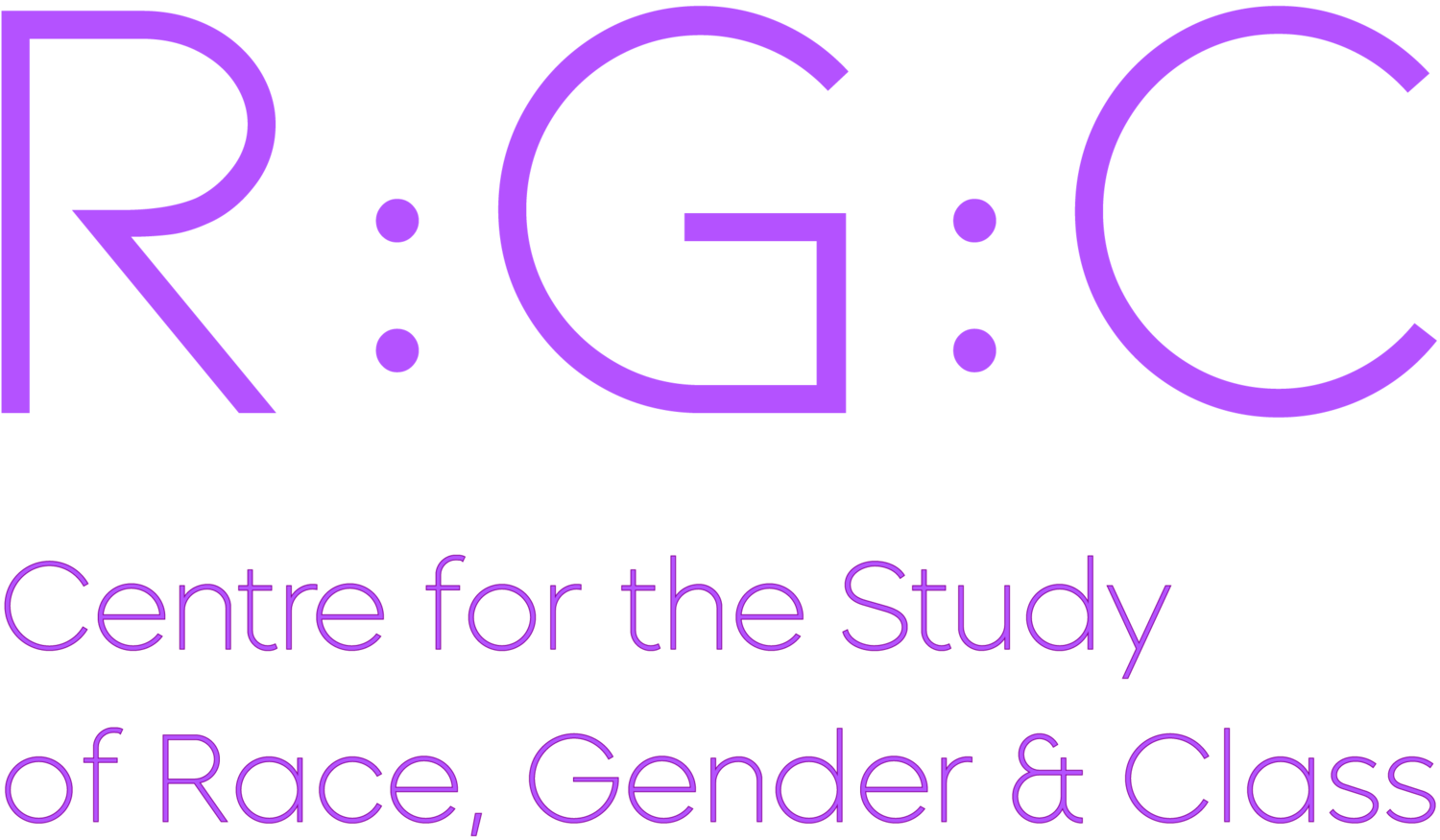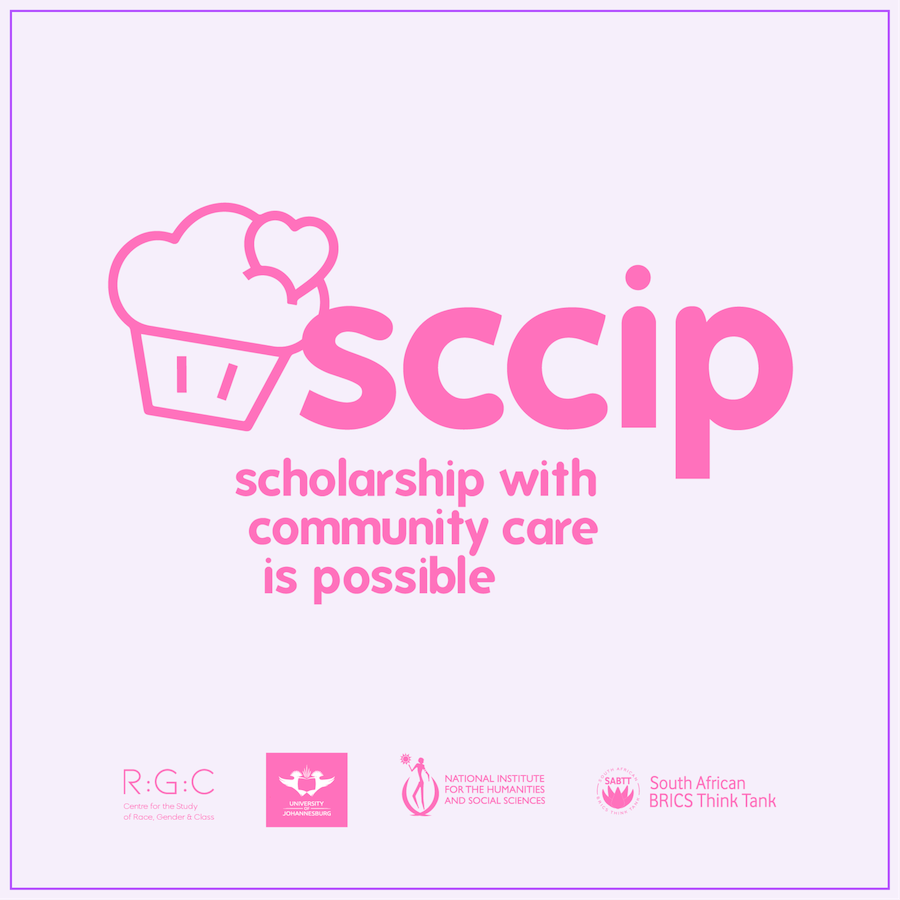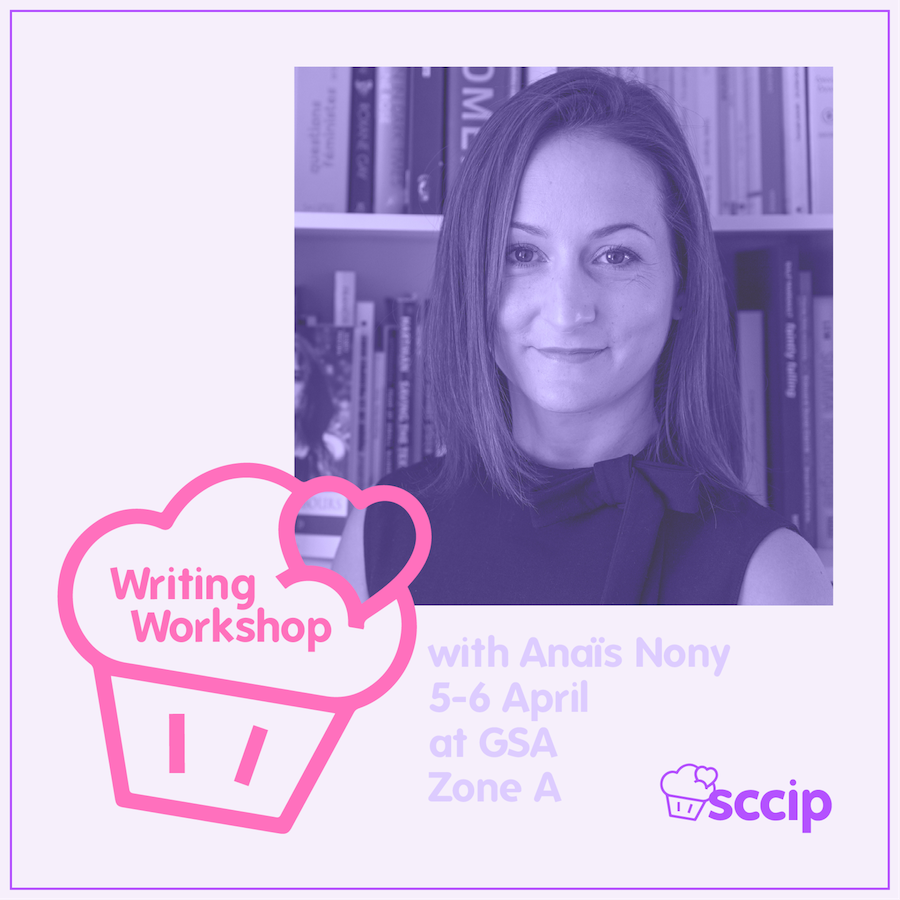sccip : Scholarship with Community Care is Possible
Scholarship with community care is possible. This is the grounding value of sccip, a postgraduate care community hosted by Race:Gender:Class, with the support of friends from across disciplines in UJ Humanities and the Faculty of Art, Design & Architecture. Recognising the often lonely, solo experience of post-graduate scholarship, sccip aims to foster a collaborative space in which to think, share, facilitate, dream and imagine theses in radically supportive, uplifting, curious and enabling ways.
sccip gatherings are informal and welcoming, thanks to our partnership with women-led community and collaboration space Toasted (@toasted). ‘Coffee dates’ are an opportunity for postgraduate students to meet and share research ideas and resources in an informal, non-combative context. Special events such as talks, workshops, seminars and studio visits are another form of care-work - as occasions for sharing skills, tips and encouragement, as well as forging collaborative relationships across departments, disciplines, organisations and borders.
sccip is orientated towards postgraduate students from multiple disciplines and UJ departments, whose research interests intersect with RGC’s commitment to Black/African/postcolonial feminist, queer and decolonial agendas of emancipation. In the interests of sustaining an intimate and focussed community, participation in sccip is by invitation only. Should you wish to get involved or learn more, please reach out to any of the group convenors: Dani Bowler (RGC), James Macdonald (RGC), Ruth Sacks (Fine Art) and Tuliza Sindi (room19isaFactory.) - or contact us here.
A note on ‘community’ - Our commitment to community care is grounded in the lived experiences and needs of black, brown, femme, queer, non-binary and trans individuals navigating the fraught terrain of postgraduate study in an institutional space still marked by the legacies of apartheid and the enduring logics (and violence) of whiteness and patriarchy. Thinking alongside Sara Ahmed, we would like to trouble the association of community with resolution - with reductive claims to unity, togetherness and sameness. sccip is, for us, an opportunity to perform and convene community differently: as desire, hope and praxis, rather than claim.
How do we cultivate conditions for welcoming encounters and exchange? How do we arrive at one another - enrich, support and acknowledge each other - through and across difference? How do we build community by imagining it differently?
“For us, to be unsettled by the very word ‘community’ is to remind ourselves that the word ‘community’ might not name all it is that we can do and can be when we ‘get together’. If we can return … to the idea of community as ‘common ground’ rather than commonality, we might think of communities as effects of how we meet on the ground, as a ground that is material, but also virtual, real and imaginary. This ground that is ‘common’ is an effect of the meetings we have with others and the tread of feet that are weary across the land - a treading that shapes the land to come and allows it to surface differently. As we meet, we might in some sense (re)make the ground for a different kind of community, one that might not even be named by the word ‘community’, in which the ‘passing by’ of others allows something else to give” - Sara Ahmed, Re-imagining Communities.




